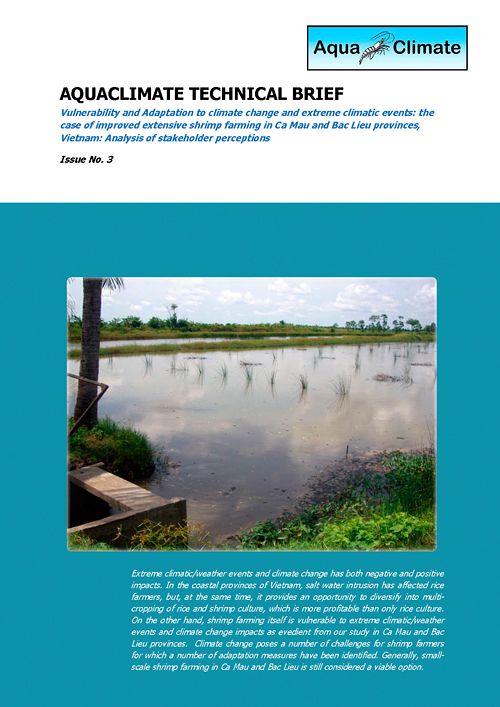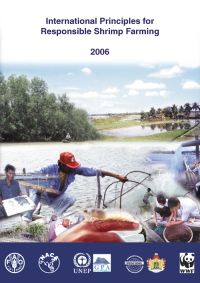Technical brief: Climate change vulnerability and adaptation for improved extensive shrimp farming in Vietnam
22 February 2011 | 1355 Downloads | .pdf | 615.06 KB | Emerging Global Issues, Inland aquaculture, Shrimp, Environment and Sustainability, Vietnam
In Vietnam, small scale farmers and other stakeholders involved in aquaculture perceive that climate changes such as frequent extreme weather events have serious impacts on their farming systems (Udaya Sekhar et al. 2009). The present study in Ca Mau and Bac Lieu provinces showed that shrimp farmers perceived too much rain, high temperature, canal/river/sea level rise, irregular weather and storms as the most serious concerns. Risk rankings of the different climate changes in Ca Mau and Bac Lieu Provinces also prioritise the seriousness of each of the climate changes that the farmers identified. High temperature and irregular weather (encompasses temp., rainfall etc) according to farmers cause serious losses for shrimp farming, followed by too much rain, sea level rise and storms.
Farmers, over the years have started to adapt, by changing the management practises to suit the changing climate such as water management, upgrading the pond dyke, and use of lime, probiotics and other chemicals. In addition, a number of institutional such as provision of budget for climate change response for aquaculture, aquaculture area planning and monitoring, government financial support (loans), policy on mangrove planting for coastal protection and development of farmer associations have been introduced that are important to assist farmers to adapt to climate change.
There is still uncertainty in our understanding of the climate change impacts. The government agencies and farmers need to be better prepared to address future impacts from climate change.
Creative Commons Attribution.

